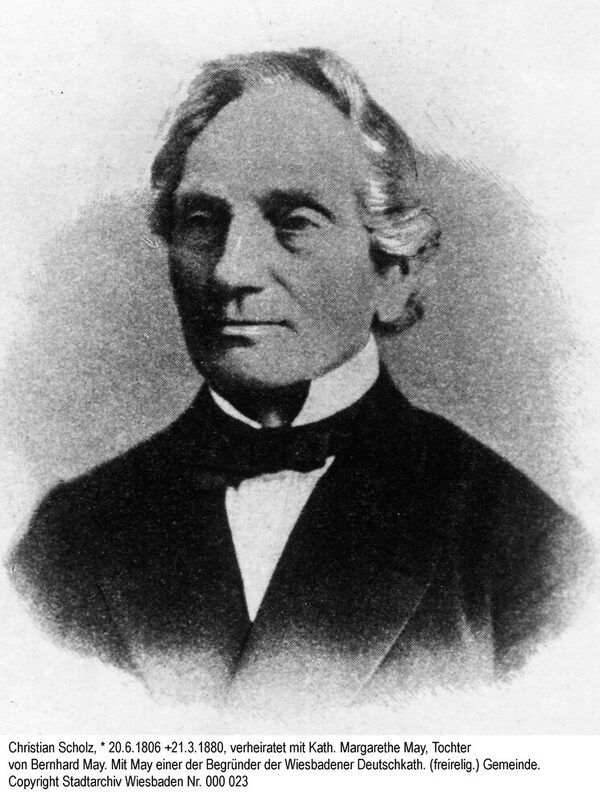Scholz, Christian
Scholz, Christian
Merchant, publisher
born: 20.06.1806 in Wiesbaden
died: 21.03.1880 in Mainz
Scholz was the son of Josef Scholz (1768-1813) from Upper Silesia, who had founded a paper and stationery business with a quill factory in Wiesbaden in 1793. After acquiring the Cetto House in 1818, a publishing house and printing works were added to the company. In 1829, Scholz took over the newly opened branch in Mainz. In 1829 he married Katharina May, the daughter of the owner of the Biebrich hammer mill, Bernhard May, which gave him financial backing. As a publisher, he brought out illustrated children's books and in 1837 started producing cut-out sheets for paper theaters. Scholz himself wrote children's books such as "Frühlingsblumen für die gebildete Jugend oder Erzählungen aus der Kinderwelt" (1846). In 1852, he lost a plagiarism case due to the alleged reprinting of Heinrich Hoffmann's "Struwwelpeter".
Scholz and his father-in-law May were involved in the founding of the German Catholic community in Wiesbaden on March 8, 1845; on February 27, 1847, Scholz founded the German Catholic community in Mainz. The Silesian clergyman Johannes Ronge (1813-87), whose protest against the exhibition of the "Holy Robe" in Trier had provided the impetus for the separation from the Catholic Church, frequented the Scholz household. Scholz was a delegate in the Frankfurt pre-parliament in 1848 and a member of the first chamber of the Nassau estates in 1864. In 1856 he became the sole owner of the Hammermühle.
Scholz is buried in the Biebrich cemetery. His son, the composer Bernhard Ernst Scholz (1835-1916), was born in 1835. He worked at the Munich Music School and as a conductor in Hanover and Breslau, as well as directing the conservatory in Frankfurt am Main from 1883-1908.
Literature
Glöckler, Peter-Michael: The historic Wiesbaden-Biebrich cemetery and its predecessors. Wiesbaden 1999 [p. 91 ff.].
Scholz, Bernhard (ed.): Josef Scholz and his descendants, Frankfurt 1905.
